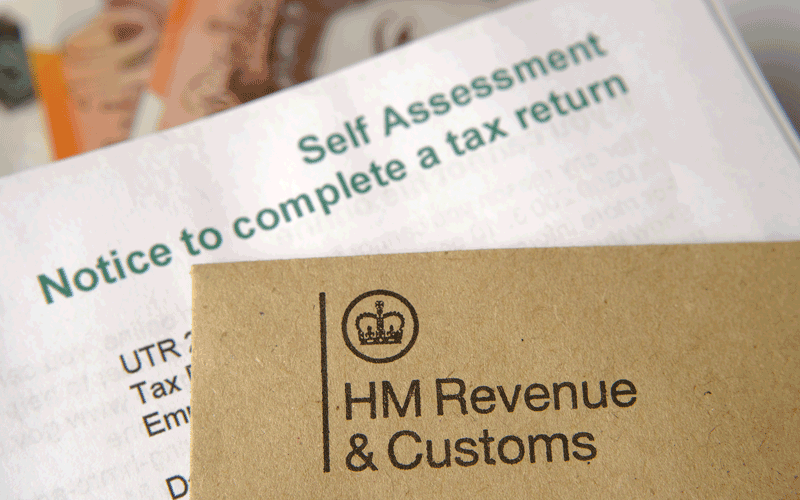Game-changing moment as HMRC eases up on double taxation

Experts say that changes for the IR35 legislation represent “a game-changing moment” in the history of the controversial legislation as a new policy aims to prevent double taxation.
Set to take effect on 6 April, the so-called ‘IR35 offset’ will empower HMRC to offset tax and National Insurance Contributions (NICs) already paid by contractors, fostering fairer sharing of tax liabilities throughout the supply chain.
In doing so, the new policy addresses a flaw in the off-payroll legislation that has seen the potential for disproportionate tax bills, which threaten firms with repayments that are four times the actual amount. This double taxation flaw within the statute will be fixed and take effect once it’s introduced.
IR35 experts believe that this new policy could “spark life” back into the freelance and contractor market, which they say has suffered as a result of the introduction of the off-payroll working rules in the public sector (2017) and private sector (2021).
Under the off-payroll working rules (often referred to as IR35 reform), businesses are responsible for determining the IR35 status (tax status) of freelancers and contractors they engage. If they incorrectly class a contractor as self-employed when their work status reflects employment, these businesses can be left with tax bills made up of employment tax that should have been paid as part of the assignment.
Seb Maley, CEO of IR35 specialist Qdos, said: “Make no mistake, this is a game-changing moment and one that significantly reduces the perceived risks associated with engaging freelancers and contractors. In simple terms, businesses won’t be overtaxed by tens, potentially hundreds, of thousands of pounds for every contractor they engage under the wrong IR35 status.
“This long overdue fix will have big implications for independent workers too. With the end of double taxation, I expect more businesses to engage contractors outside the clutches of IR35 – something that many had decided against following the roll-out of the off-payroll working rules.
Also commenting, Dave Chaplin, CEO of IR35 compliance firm IR35 Shield, said: “It’s certainly true that there was a ‘double taxation’ threat because the same money was being taxed twice. However, in terms of the amount of tax, it was, in fact, a “quadruple-tax” threat – because the amount of tax due was four times what was needed to be paid to balance the position.
“As a rule of thumb, the offsets, the extra tax to pay, will be about 10-15% on top of the fees paid for the contractor. So, let’s say a firm with 100 contractors gets 10% of its outside IR35 assessments wrong – which would be a very high figure anyway – the extra tax due would be around 1-1.5% on top of the total contracting bill for the flexible workers.
“Because the tax offsets are now automatically baked into the legislation, where firms have made mistakes, settlements will be far quicker and easier to resolve and avoid the need for firms to go to expensive and time-consuming tax tribunals.
“Firms don’t need a blanket ban approach anymore. If firms show they have taken reasonable care, HMRC will likely be satisfied that the correct tax is being paid.
“All in all, it is good news for the flexible economy, contractors and hiring firms.”
This flaw in the legislation has increased the perceived risk of engaging contractors, with many businesses opting to blanket ban contractors or insist they operate via PAYE in response to the introduction of the off-payroll working rules.
For example, a population of 500 contractors over a three-year period would likely have paid over £50m in corporation tax and dividend tax. This will now be offset from any tax bill levied at private sector businesses.
Having previously been consulted on the issue, the government confirmed in the Autumn Statement that the legislative fix would be introduced from 6 April (2024/25 tax year) onwards. It will also apply retrospectively, meaning businesses caught up in investigations will benefit.
Qdos’s Maley went on to say: “So while relatively small, this legislative change should give businesses the confidence they need to engage genuine contractors in the most cost-efficient and flexible way. It’s not an overstatement to say that it could spark life back into the market, becoming a catalyst for more freelance opportunities.”
When calculating the amount to be offset, there are several types of tax and NICs expected to be included, according to Rob Rees, divisional director of insurance company Markel Direct:
- Corporation tax paid by the contractor’s company on income from the assignment in question
- Tax paid by an individual on company dividends generated by income from the assignment
- Income tax and employees’ NICs on a salary paid from the contractor’s company, on income generated by the assignment in question
- Any Class 2 and Class 4 NICs paid on income from the assignment.
“The impact this new policy will have is that tax liabilities will be more fairly shared through the supply chain,” Rees said. “What this means is that clients, or other deemed employers, will no longer bear an unfair tax burden in cases where the determination is challenged. This is expected to alleviate somewhat the concerns surrounding the engagement of PSC workers.
Rees said the following people will be affected:
- Freelancers/contractors utilising an intermediary, like their own limited company (referred to as a personal service company or PSC), who would be considered employees if hired directly
- Medium and large-sized clients, partnerships, and individuals hiring individuals who operate through their own intermediary channels
- Public authorities and agencies hiring individuals who operate through their own intermediary channels
- Recruitment agencies that sit in the contractual chain and pay PSCs.
Danny Batey, senior tax consultant at specialist tax consultancy business Markel Tax, believes the provision will have a positive impact on the contractor market space. “The new IR35 policy serves as a strong incentive for recruitment agencies and clients to engage with PSCs fairly and on an outside IR35 basis, where the contracts and working practices support this, reducing fee-payers' tax and NIC liabilities while attracting top contractor talent,” he said.
“The offset provision, which affects liabilities assessed on a fee-payer going back to 6 April 2017 for public sector engagements and 6 April 2021 for those in the private sector, is likely to encourage clients to offer more outside IR35 roles, benefitting contractors with exciting opportunities and better financial incentives. Agencies supporting this process become preferred partners, leading to successful engagements with both contractors and end clients. Additionally, assignments outside IR35 enable PSCs to claim T&S [travel & subsistence], allowing clients to attract contractors nationally, enhancing flexibility and accessibility.”
However, he also warns that the new policy may not benefit everyone: “It may have a negative consequence for umbrella companies who may see a migration of contractors that were forced to engage via an umbrella back to contracting via a PSC.”
Markel Direct explains IR35
IR35 rules determine if a contractor is genuinely self-employed or a disguised employee for tax purposes. There are two statuses: inside IR35 (employee-like) and outside IR35 (genuine independent contractor). Criteria has been established by case law precedent in order to evaluate a contractor’s IR35 status, which includes:
- Control – does a client exercise, or have the right to exercise, control over what, where, when and how the contractor undertakes the work?
- Substitution – does the contractor have the ability to send someone else to provide their services if they are unable to do so?
- Mutuality of obligation – is the client obliged to offer the contractor work, and if offered, is the contractor obliged to accept?
- Equipment – does the contractor use their own equipment?
- Financial risk – is the contractor open to financial risk during an assignment, and do they have business insurance in place, such as professional indemnity insurance?
- Remuneration – is the contractor paid on a fixed fee project basis?
- Exclusivity – does the contractor work for multiple clients at a time?
- Relationship – is there a clear supplier and customer relationship as opposed to that of an employer and employee?
- Being in business – does the contractor have things like a business website, office space or employees? In the private sector, where the end client is a medium/large business, they are responsible for determining the IR35 status for all PSCs they engage either directly or indirectly. The client must then produce a Status Determination Statement (SDS) and pass this on to all parties in the contractual chain confining their IR35 decision. Where the client falls within the public sector, regardless of its size, an IR35 assessment must be undertaken for all its PSCs and an SDS issued. Where a client considers that an assignment is outside IR35, fees paid to the PSC for the work undertaken will be on a gross basis, the PSC is then responsible for paying their own taxes. However, if HMRC investigates the end-client business and finds that the contractor should have been operating inside IR35, another tax bill is issued for the whole amount of tax and NIC due, resulting in double taxation.
• Comment below on this story. Or let us know what you think by emailing us at [email protected] or tweet us to tell us your thoughts or share this story with a friend.




